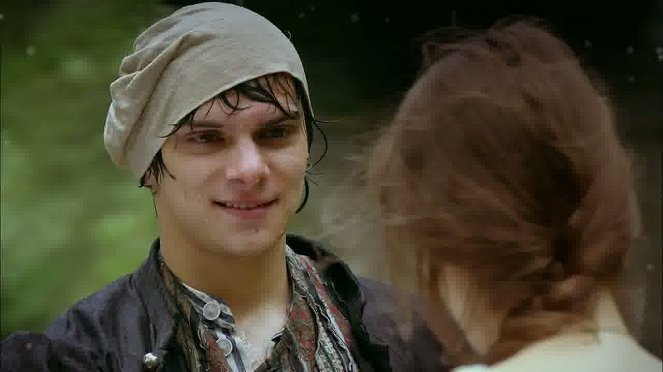Rendező:
Jiří StrachForgatókönyvíró:
Marek EpsteinOperatőr:
Martin ŠecZeneszerző:
Jan JirásekSzereplők:
Ivan Trojan, Filip Cíl, Jiří Dvořák, Martina Zábranská, Ondřej Vetchý, Lenka Vlasáková, Jiřina Bohdalová, Dagmar Havlová, Josef Somr, Matěj Převrátil (több)Tartalmak(1)
Filipet, a kéményseprő fiút gyermekkora óta balszerencse kíséri, mivel születésekor édesapja kijátszotta Fortunát. Filip megelégelve folytonos szerencsétlenségét útnak indul a nagyvilágba, hogy megszabaduljon tőle. Kalandos útja során beleszeret Fortuna rég elveszett lányába, Haňičkába, akit egy vándormutatványos tart fogva. A szerelmetes flótás nem habozik, a lány után ered. Útjába akad egy notórius hazudozó, ráadásul még a nevét sem tudja. Filip és a "hazudós Jakab" együtt folytatják tovább a vándorlást, hogy végül Filip legyőzhesse balszerencséjét és megtalálja szerelmét, Haňičkát. (MTVA)
(több)Recenziók (2)
Frk and Bohdalka got to me - similar morbidity is noticeably missing here. Fear is alternated by a television routine with shots that sympathetically seek the big screen. Sometimes it's a pleasant spectacle with poetics. Trojan succeeded in the Uncle Pepin and Jack Sparrow mix, an ethereal loving couple with a traditional head shaker. Oh, the Czech Hanas. The role of Štěstěny monotonously outside of good and evil (and the whole film). Otherwise, after a while, it’s a painless TV show, where everything is just right and it can be watched without the assistance of a psychiatrist and pathologist.
()
Sadly, Jiří Strach is no longer a guarantee of at least a little bit of good spectacle for me. I was quite looking forward to Lucky Loser, because the outline of the story looked more than appealing. But a better screenwriter probably should have taken it on. Marek Epstein was not able to write a good joke this time (he can truly do without the cheap humor like the visit to the blacksmith, the "second coffin" or the stepping into...) or a sympathetic character (the liar was saved only by Ivan Trojan), he completely lacked ideas (while the combination of the characters of a notorious liar and a sickly loser promised so much fun), he used the oldest situations and lines possible ("Am I in heaven? Are you not an angel?") and only once in a while did he manage to create a "catchphrase", which was again awkward. As for the actors, the protagonist was absolutely impossible, his beloved got no opportunity to shine or fade, the other members of Strach's favorite ensemble (only Viktor Preiss was missing) got mostly miserable dialogues. This is not the second Angel of the Lord - the director and especially the screenwriter were either very unlucky or they just blew it.
()

